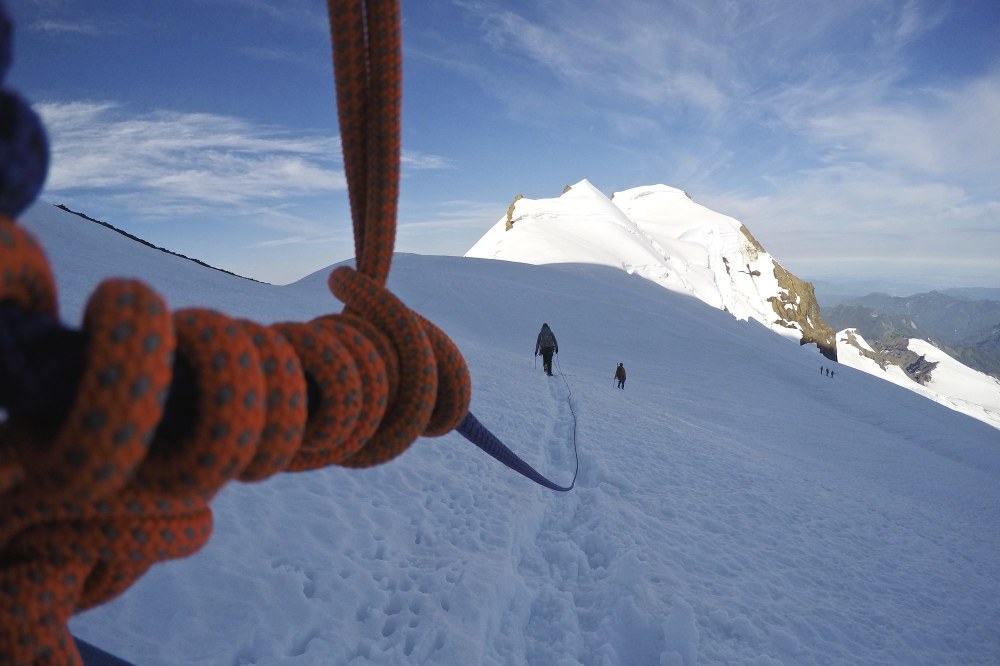
The scene is one familiar to every Mountaineer: a full car on a long drive back from a successful outing. The conversation is flowing and everyone is at ease after having shared an inspiring time out in the wilderness. Then, inevitably, a fellow climber asks me the question: “Where are you from?”
I freeze and others immediately sense tension. Something in me snaps, and I respond tersely. “I really don’t know how to answer that question," I say. "What are you asking exactly? Where do I live now? Where was my last significant place of residence? What are you really trying to get at?”
A chill descends in the car. I have ruined the mood. Everyone is confused about my reaction and asking themselves, “What the hell just happened?”
This is not a post about policing language. The question – “where are you from” – is completely innocuous. I understand that most people ask it from a place of genuine interest intending no harm. But depending upon who you ask, you may receive an unexpectedly hostile reaction. I want to explain why.
I am of Korean descent. I am also a first generation immigrant. I am proud of that heritage. But I am also a proud American. My day job as a federal prosecutor requires me to stand up in court on behalf of the United States. I literally represent America, yet, repeatedly, I am asked where I'm from. I never hear any of my white counterparts asked that question.
When I answer, sometimes, that I am from Chicago, the questioner insists, “No, where are you REALLY from?”
This is not an uncommon experience for those of us who are deemed “ethnic” or, for that matter, anyone who may have an accent. A fellow Mountaineer whose first language wasn't English once answered the question by explaining he was from Kirkland. The questioner, however, protested, “You cannot be from Kirkland!”
The reason why I, and others like me, find this question troubling is because this question marks us as different, foreign and, frankly, not American. We are all from somewhere, and yet this question is never asked of those individuals who look and sound like they belong here. This question differentiates those who are asked it as forever "other", no matter how many generations that person’s family may have been here.
The question also evokes the deeply troubling history of what it means to be “American”. For example, this country never conceived of a need for immigration control until the flow of Chinese immigrants grew in the 1800s in response to opportunities for work in the American West. Although East Asians accounted for only 0.2 percent of the population, Congress saw fit to pass the first immigration control law of its kind in 1882: the Chinese Exclusion Act. The Act placed a complete ban on Chinese immigration and, for good measure, excluded those already in the country from being naturalized. This ban was not lifted until 1942.
Then, well known by now, the government interned and confiscated the property of individuals of Japanese descent in WWII. Despite those individuals having citizenship and multi-generational presence on American soil, rights enjoyed by Americans were not extended to them. Their loyalties as Americans were suspect simply by virtue of their ancestry.
Much progress has been made in acknowledging a diverse America. But this instinct to other-ize those who look and sound like they are not from here remains. During the 1998 Winter Olympics when US figure skater Tara Lipinski beat teammate Michelle Kwan for the gold, the news channel MSNBC ran the banner headline “American beats out Kwan.” In the 2002 Winter Olympics, Michelle Kwan and a favored Russian skater were both beat by American Sarah Hughes. The Seattle Times then repeated the same gaffe committed by MSNBC by promoting the headline “American outshines Kwan, Slutskaya in skating surprise.” You can read the newspaper’s apology, which includes a helpful analysis of why this type of treatment is problematic.
I don’t want to be the conversation killer. We should, by all means, feel free to inquire about one another’s diverse histories and backgrounds. This is one of the reasons why I love being on Mountaineers trips! But let’s have an honest conversation that will allow us to celebrate differences rather than divide one another into categories: from here and not from here.
If you are curious about my origins, ask about it directly! If you detect an accent, and are curious why, ask about it directly! Tell me about yourself and your family. We are all from somewhere and my hope is that a more honest and transparent conversation will allow for an expansive vision of what America, and The Mountaineers, looks like.
More Resources
Add a comment
Log in to add comments.Great article Katheryn. Thank you for sharing your perspective and helping us all better understand how we can all be more inclusive.
 Katheryn Frierson
Katheryn Frierson